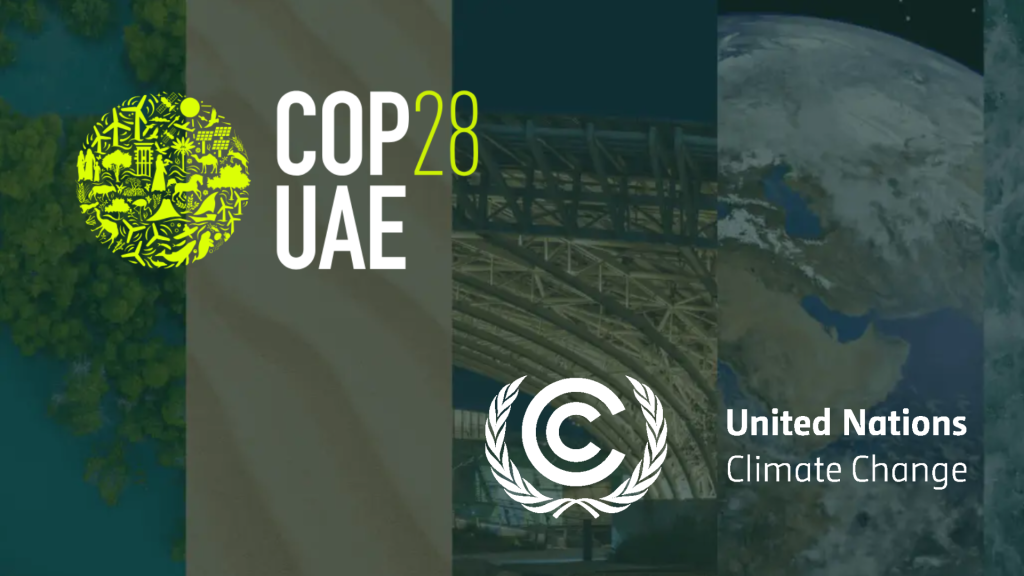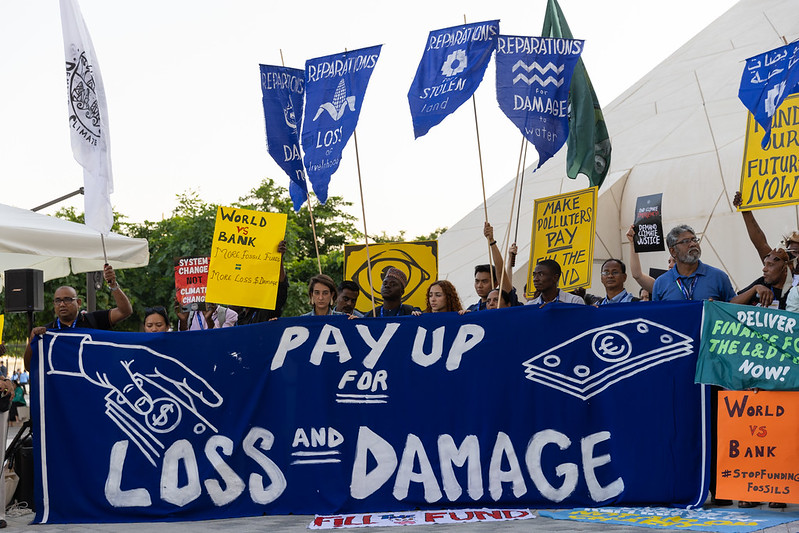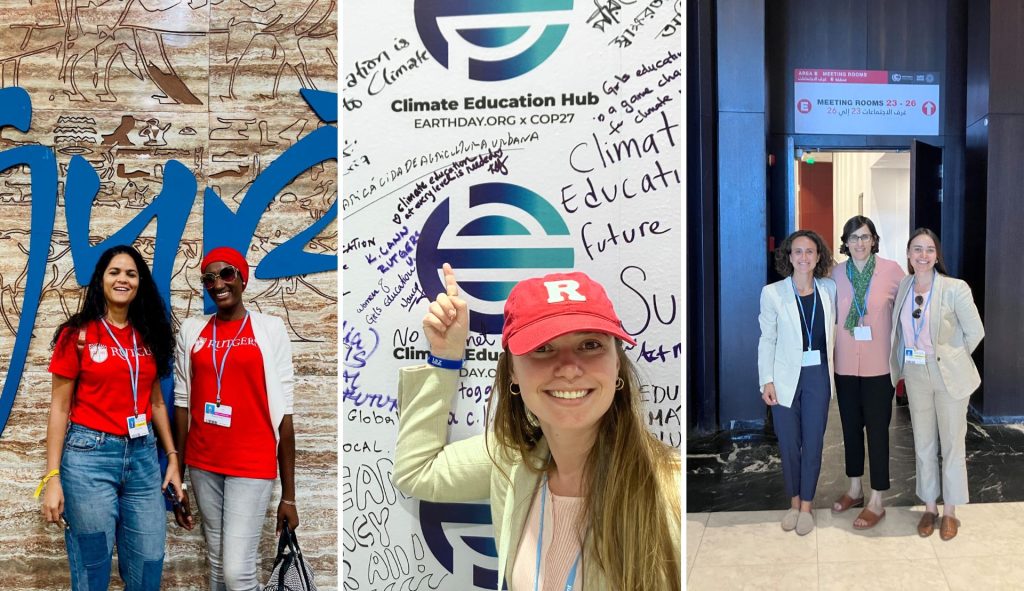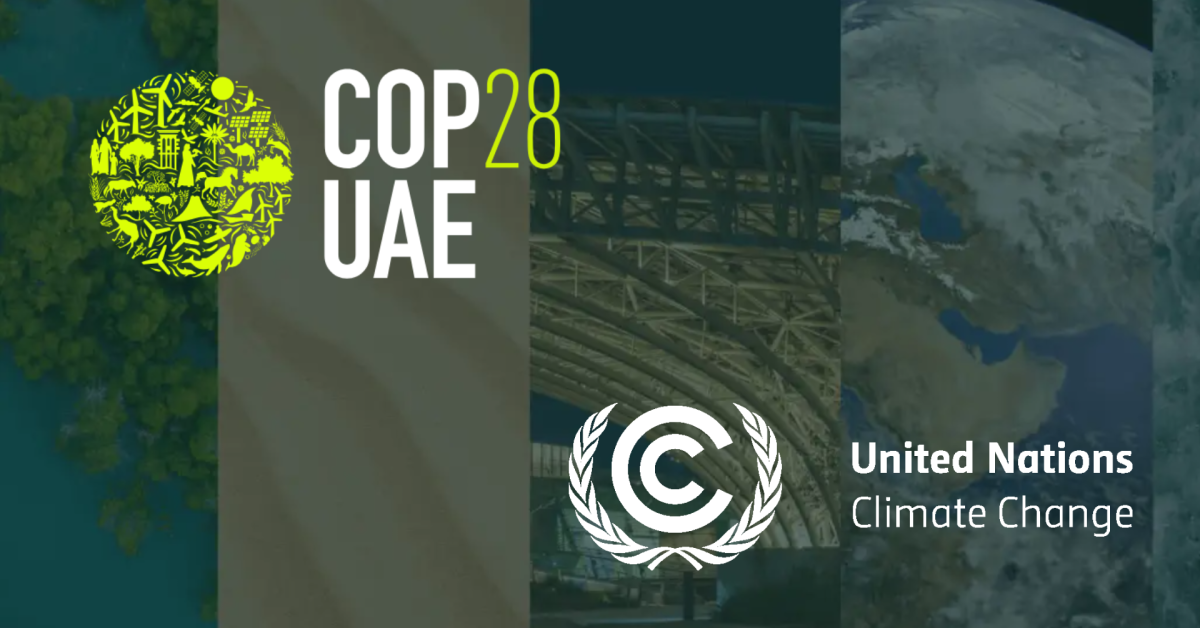By Lea Cerini, OCA Communications Intern and Sustainability Ambassador, Undergraduate Student, Rutgers—New Brunswick
The United Arab Emirates is hosting the 28th UN Climate Change Conference of the Parties (COP28) in Dubai from November 30th to December 12th, 2023. COP28 is an international climate summit that brings together 198 parties (197 countries & the European Union) to evaluate progress towards climate goals such as the Paris Agreement and plan international climate action. The 70,000+ attendees include state and world leaders, the EU, non-governmental organizations, companies, universities, youth groups, and other stakeholders. There will be discussions on the intersections of climate and technology, finance, natural disasters, war, business, commerce, tourism and more!

This year, a key focus of discussions will be on the new Global Stocktake. The Stocktake is a collective assessment of the 198 participating parties and their progress toward the goals of the Paris Agreement, which was adopted in 2015 at COP21. The Paris Agreement is a legally binding international treaty that set the goal of reducing greenhouse gas emissions to limit global temperature increases to 1.5֯°C above pre-industrial levels in order to mitigate the impacts of climate change. Currently, the world is not on track to fulfill the Paris Agreement due to avoidance of emissions reductions from rich countries and little interest in conservation enhancement activities globally.The stocktake will review challenges and barriers that have been overcome in the past, and the opportunities for future international cooperation to overcome the barriers that remain to achieving international climate goals. Additionally, the Global Stocktake seeks to prioritize developing countries that are too often forgotten about in international negotiations such as COP.
The parties will also negotiate how to operationalize the Loss and Damage Fund, a breakthrough agreement from COP27 in Sharm El-Sheikh, Egypt last year. Small island states and low-income nations advocated for and were promised financial compensation from high income nations because they face some of the highest costs and risks of climate change yet contributed the least to causing it. The promised funds will be critical to the preservation of many countries and their communities. There have been five meetings this past year on discussions on how to operationalize the fund, but progress on implementation has been limited.

Some important aspects of the Loss and Damage Fund that are being considered at COP28 are who should be accountable for the fund, who will the money go to and for what services, and how communities will be involved in the decision-making process. The United States and the European Union are advocating for the World Bank to host the fund. Others have argued that the World Bank fees are too high and that the arrangement would give the US outsized control. Many advocate for the fund to be independent. Funding the program is also up for debate. Currently, high-income countries are urged to contribute to the fund on a voluntary basis, but there are no targets or requirements. With no plan, there is a risk that funding “will simply be drawn from existing aid budgets”(UNFCCC, 2023). The ambiguity of the Loss and Damage Fund leaves many questions to be answered at COP28. While there is a lot of disagreement between the parties, they share a common goal to ensure it can meet “the urgent and immediate need for new, additional, predictable and adequate financial resources”, while also “ensuring that existing development and climate financing” is not diverted (UNFCCC, 2023).
In addition to the Loss and Damage Fund, ocean based carbon dioxide removal is a top topic to watch given recent global investment in new carbon dioxide removal solutions to geoengineer the sea. These new technologies could be the key to achieving the goal of limiting global warming to 1.5˙C since the ocean holds a large carbon sequestration value. At COP28, there will be negotiations regarding the technology’s effectiveness, its environmental justice implications, monitoring and evaluation, and potential biophysical, social, and cultural risks associated with the technology.
This year at COP28, a team of Rutgers professors will attend as “observers” of the negotiations on behalf of the university. This year’s delegation will include Professors Cymie Payne, Pamela McElwee, Danielle Falzon, and Jesse Rodenbiker. Rutgers University gained institutional observer status to the UN Climate Change Conference of the Parties (COP) in 2018, with the assistance of the Rutgers Climate Institute and Rutgers Global. Observer status allows guests representing Rutgers to witness and speak during negotiations, but not to vote. Observer status also allows organizations like Rutgers to participate in a prime networking opportunity that leads to many international collaborations. Rutgers attended COP for the first time last year in Sharm-El Sheikh, Egypt. Geography PhD student Katherine Cann shared a reflection of her experience as a student and observer at COP27 here.

Even if you are not able to attend COP28 in-person, there are many ways for those interested to stay engaged. The Environmental Energy Study Institute newsletter offers daily updates and analysis. The International Institute for Sustainable Development is an independent think tank that students can follow for important environmental news. The podcast “The Road to COP28: Planet A – Talks on Climate Change” with Dan Jørgensen and Danish Climate Ambassador, Tomas Anker Christensen, is a great resource that shares the journey to COP28 and the fight for change through global climate diplomacy.
The day after the conclusion of COP28, Rutgers Climate Reality, a student organization on campus, will be hosting a recap event in the form of a zoom presentation on Wednesday December 13, 2023, 6-7pm. The presentation will include digestible international climate updates from the convention and is accessible to anyone interested. For more information, check out their instagram: @climaterealityru!
Special thanks to Marjorie Kaplan, Senior Associate Director of the Rutgers Climate and Energy Institute for providing her insights regarding COP and the role of Rutgers as an observer organization.












